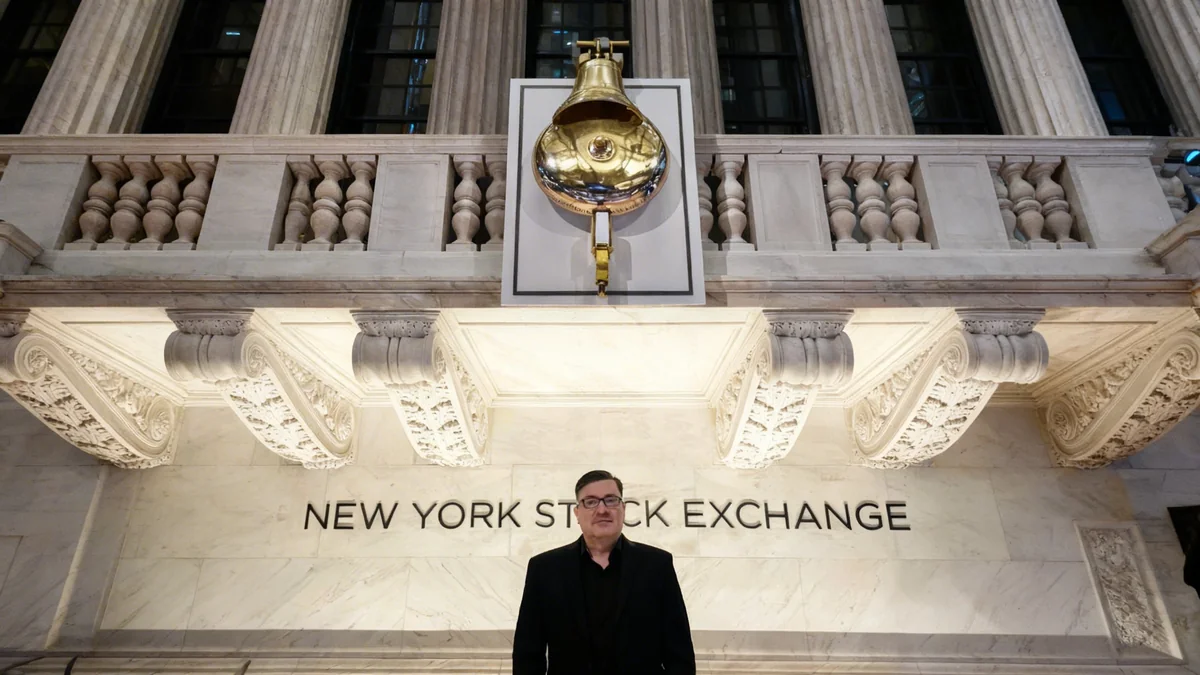In a significant move that signals the cryptocurrency industry's growing integration with mainstream finance, Ripple Labs is reportedly in advanced discussions to establish a major office in the City of London. The fintech firm is considering leasing a substantial 90,000 square feet of space in a newly constructed skyscraper, placing it directly among the world's most powerful financial institutions.
This potential expansion highlights a broader trend of mature digital asset companies moving away from traditional low-regulation havens and toward established global financial centers. By seeking a physical presence in London's Square Mile, companies like Ripple are aiming to tap into deep pools of capital, talent, and institutional partnerships, despite facing a more stringent regulatory environment.
Key Takeaways
- Ripple is in talks to lease 90,000 square feet in the new One Leadenhall tower in London's financial district.
- The move reflects a trend of major crypto firms seeking legitimacy and proximity to traditional financial institutions.
- London offers access to immense capital, talent, and an established financial ecosystem, which is crucial for large-scale crypto operations.
- Despite its appeal, London's strict regulatory framework, overseen by the FCA, presents challenges for digital asset companies.
- The decision to choose London over emerging, crypto-friendly hubs like Dubai underscores the enduring importance of established financial centers.
A New Address in the Heart of Finance
Ripple Labs is negotiating to occupy several upper floors of the One Leadenhall building, a 36-story tower completed this year. Situated at the intersection of Bishopsgate and Leadenhall Street, the location is more than just prime real estate; it's a statement of intent. The building stands moments away from the UK headquarters of financial giants such as BlackRock, UBS, and Bank of America.
For a company rooted in digital technology, this pursuit of physical proximity is critical. The City of London has long operated on a culture of face-to-face meetings and personal networks. Establishing a base in this environment provides direct access to the decision-makers who drive global finance, facilitating partnerships and deals that are difficult to secure remotely.
The Significance of the Square Mile
London's financial district, often called the "Square Mile," is one of the world's primary centers for banking, insurance, and asset management. A physical presence here is seen as a mark of stability and seriousness, helping to bridge the gap between the disruptive world of crypto and the established order of traditional finance.
The Maturation of the Crypto Industry
The early days of cryptocurrency were characterized by firms setting up in low-tax, lightly regulated jurisdictions like various Caribbean islands or pioneering crypto hubs such as Zug, Switzerland. This allowed for rapid innovation with minimal oversight. However, as the industry has matured, its needs have evolved.
Today, the largest crypto companies are multi-billion dollar enterprises requiring sophisticated banking services, access to institutional investors, and a deep talent pool with experience in both technology and finance. These are resources that traditional financial centers like London, New York, and Hong Kong offer in abundance.
Ripple has grown into a financial technology firm with an estimated valuation of over $15 billion. As companies reach this scale, their operational and banking needs often outgrow the capabilities of smaller, offshore financial centers.
As these firms grow, they also have much to learn from the established practices of traditional finance, particularly in areas like risk management and regulatory compliance. Alessio Treglia, a Chief Technology Officer at Yellow Card who previously worked for global banks in London, noted the parallels between the sectors.
"When you write code, you make risk-based decisions on a daily basis," Treglia explained. "I see lots of things in common between running a hedge fund and running a tech company."
This perspective highlights how experience from the traditional financial world is becoming increasingly valuable within the digital asset space.
London's Appeal Versus Global Competition
Despite its attractions, London is not without its challenges for crypto firms. The UK's Financial Conduct Authority (FCA) is known for its rigorous approach to regulation. Some industry participants argue that the heavy compliance burden can stifle innovation and make it an expensive place to operate.
This has led to unfavorable comparisons with emerging hubs like Dubai, which has actively courted crypto companies with progressive regulations and a favorable tax environment. Andrea Cosentino, an advisor and investor active in both cities, described the pull of the Middle East as an "El Dorado promise" for founders.
He acknowledged a common view that while Gulf financial centers are rising, the UK's global prominence may be shrinking. However, he emphasized that London's deep-rooted advantages remain formidable.
"London is an established hub," Cosentino stated, adding that cities like Dubai don't yet rival its scale. He observed that despite any perceived decline, "there is a great concentration of talent and knowledge" and an "entrepreneurial fabric" in the city that is difficult to replicate.
Why London Still Wins
Ultimately, the decision for a company like Ripple comes down to a simple, powerful factor: London is where the money is. For large-scale crypto firms that need to manage vast sums, provide liquidity, and integrate with global payment systems, access to London's financial infrastructure is indispensable.
The city's ecosystem provides a unique combination of:
- Access to Capital: A high concentration of venture capital, private equity, and institutional investors.
- Talent Pool: A world-class workforce with expertise in finance, technology, law, and regulation.
- Established Infrastructure: Robust banking, legal, and professional services tailored to the financial industry.
- Global Connectivity: A central time zone and deep connections to markets in North America, Europe, and Asia.
Ripple's potential move into One Leadenhall is more than a simple office expansion. It is a strategic decision that underscores the crypto industry's ongoing evolution from a niche, disruptive force into a mature and integrated part of the global financial landscape. By planting a flag in the heart of London, Ripple is betting that the future of digital assets will be built in partnership with, not in opposition to, traditional finance.





